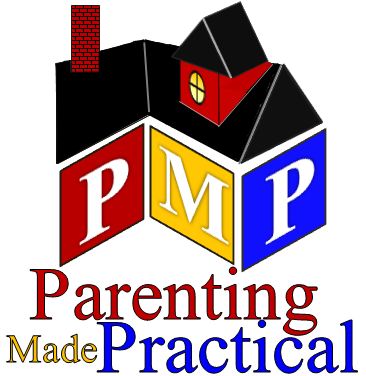Joey & Carla Link
August 6, 2025

Do you tell your kids when it is time to do their chores, like taking out the trash or sweeping the floors? Do you tell them every day to get their homework done and remind them when they have a paper due? Do you remind your daughter to call a mom back and tell her whether she can babysit or not? Who is in charge of them staying on top of what they need to get done – them or you? When do you plan to turn this over to them? Even your kids ages 5 yrs. and up can remember to get their bed made before they come to breakfast. If they know you are going to remind them, they don’t have to remember on their own. Think about that.
In the teen years, your teenage daughter is babysitting a couple times a week and has marching band practice every day after school. Your son is mowing lawns on weekends plus football practice and games. You want your kids to grow spiritually so they attend the weekly youth meeting plus are involved in a small group Bible study. Time with their friends, not to mention the time it takes to get their homework done every day adds to their time-takers. Time. No one seems to have any of it and something is always left undone.
Parents wonder how their teenager is going to keep on top of his/her stuff when they go to college and Mom isn’t there to remind them what they need to get done. We have known way too many teens who have failed miserably at this and had to come home after their first semester or year away.
How do parents help their teens learn how to work with time-frames?
1. Kids younger than 8 yrs. old need short time frames to get their chores done. These time frames need to be daily if their responsibilities are daily. A 6 yr. old can remember to make his bed and brush his teeth before he/she comes to breakfast. Always tell them to come find you when the task is done. If you don’t trust them, go check.
2. Older kids can have longer time frames, and I would ask them for them. If you tell your 13 yr. old son to take the trash out, ask him when he thinks he can have it done by. Your 15 yr. old son can tell you he should be finished with his homework in an hour and he’ll do it then.
· With kids 9 yrs. and up, ask them when they think they will get the job done.
· Ask them if you can trust them to do it or will you need to check and make sure it was done.
· If you find it isn’t done, no reminders. Have them sit to get their heart right so they can go through the Repentance/Forgiveness/Restoration process. To make it right they should tell you they will get the task done now.
· Tell them to come to you when they have completed it as they will need a consequence. Taking away the privilege of what they were doing instead of the task is a good one.
· If you find it is done, be sure to praise them for getting it done when they said they would. Older kids need praise too.
When we started doing this with our kids we were surprised how good they all were about staying within those time frames when working on their school, with their activities, and getting their chores done. I stopped reminding, and they took ownership of their responsibilities.
“But all things should be done decently and in order.”
1 Corinthians 14:40
Have you listened to these Mom’s Notes presentations?
The Middle Years Transition
In between ‘The Training Years’ and the ‘The Coaching Years’ is ‘The Middle Years’. This is a critical time of development morally, physically, and spiritually in the life of a child. Just when parents think things are going well, their child moves into the middle years and an entire new set of challenges present themselves. This presentation discusses how parents can know when they need to use their authority in dealing with their pre-teen, or when they can start moving to working with this child by the power of the parent’s relational influence.
Commonly Asked Questions About Teens
Questions we are frequently asked about teens are addressed in this presentation. Issues pertaining to dress and entertainment are discussed. In addition, guidelines are given sharing how parents can guide their teen by their influence versus by the power of their authority.
Parenting Made Practical Podcasts
#38 “How Does Your House Look”
